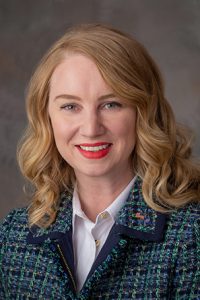Sales tax exemption proposed for menstrual hygiene products
The Revenue Committee heard testimony Jan. 25 on a bill that would exempt tampons and other menstrual hygiene products from state sales and use tax.
LB170, introduced by Omaha Sen. Megan Hunt, would exempt tampons, panty liners, menstrual cups and sanitary napkins from sales and use tax.
Hunt brought an amendment to the hearing intended to clarify that the exemption would apply only to menstrual hygiene products and not feminine hygiene products such as soap or shampoo.
The state Department of Revenue estimates that LB170 would decrease state tax revenue by approximately $1 million in fiscal year 2019-20 and by approximately $1.6 million in FY2020-21.
Hunt said access to menstrual products is limited for vulnerable populations such as the homeless, and health insurance and flexible spending accounts do not cover the cost of those items.
“Menstrual products are indispensable, necessary and vital for the health, well-being and full participation of women and girls in all aspects of society,” she said. “These products are necessities, not luxuries, and I think it’s time our tax code reflected that reality in Nebraska.”
Jen Day of Omaha testified in support of the bill, saying that tampons and pads are essential for women and girls to live their lives with dignity. In the past, she said, she has had to go without tampons because she could not afford them.
“Rushing to the restroom in the middle of the day because you have bled through your pants is not only disruptive but terribly embarrassing,” she said.
Under current law, Day added, Nebraska women and girls have to pay a tax that men do not.
“To categorize menstrual products as a non-necessity is unfairly shifting economic burden in a clearly gendered way,” she said.
Meg Mikolajczyk, deputy director of Planned Parenthood in Nebraska, also testified in support of the bill. She said one recent study found that nearly two-thirds of women were unable to afford menstrual hygiene products during the previous year.
“This issue disproportionately affects low-income people,” Mikolajczyk said. “Tampons and pads cannot be purchased through government assistance programs and are one of the most requested items at shelters and food banks.”
The committee took no immediate action on the bill.

